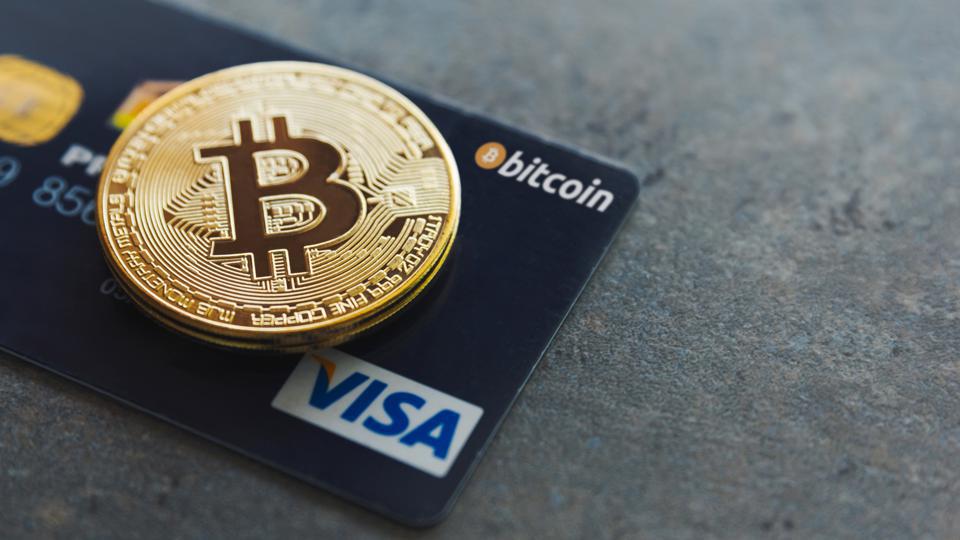Businesses love accepting Bitcoin. You have heard it on the news, read it on Reddit, and kept up with the latest market developments here at CryptoCoinsNews.com. The mainstream is starting to come around to Bitcoin, and the more they hear about Bitcoin, they more they accept Bitcoin as a smarter way to pay. Particularly for merchants, the benefits can be huge. Large, and small, businesses love accepting Bitcoin!
Why have major players like Overstock.com, Dell Computers, and Wikipedia jumped on the Bitcoin bandwagon when it was time to take a payment? And why are many, many more Fortune 500 companies going to follow their lead? Let’s take a look at how Bitcoin is the next level of merchant-friendly.
Merchants Love More Ways to Get Paid

We’ve come a long way in payment technology
Nothing brightens a merchant’s day more than to accept a payment for a job well done. We’ve evolved from a bartering system of pelts and livestock to the European accounting system of “Tally Sticks”. Gold and silver pieces have had their day, then were replaced by paper money redeemable for precious metals. Writing actual checks had a couple of decades of prominence. Then the world moved to a pure fiat currency in 1971, and now, digital currency is ready to take Center Stage in The Digital Age. Making it as easy as possible for a consumer to pay you is always a wise business decision, and you have more choices now than ever before to send money. Does a merchant actually care how he gets paid? Well, it depends on the costs of doing business.
Checks, for example, were much more common in the middle of the 20th century. The downsides were legion, including a general lack of security of a consumer’s bank account information. And having to make out handwriting on the check, plus it is not exactly a quick and convenient way to buy diapers at Walgreens. Buying things with gold and silver pieces in the 17th century would leave consumers open to robbery from thieves. There was no way to provide exact change for transactions, and who wanted to carry weighty pieces everywhere, just in case you needed to buy something? Now pure fiat currency (paper money not backed by anything) is heading to the end of it’s run due to inflation, or hyper-inflation, depending on your locale. The reliance on computers for e-commerce and the need to pay exchange fees for international trade. And using debit/credit cards are rife with fraud and identity theft costs. Just ask Target and Home Depot. Credit/debit cards are 1950’s technology not ready for the 21st century. These companies are now behind the times, dependent on technology that is becoming obsolete.
It has the same value in any country, as the world’s first global currency. You don’t have to carry them on-hand, increasing user security. It is designed to increase in value over time, as an anti-inflationary medium of exchange that relies on “sound money” principles like supply and demand. And you can use it as a store of value, or a way to send information. A pure investment vehicle, or a way to buy goods and services, with many more security options than were ever previously available.
Why Do Businesses Love Accepting Bitcoin?
So why are the major players moving in Bitcoin’s direction? Because it makes sound business sense to do so. It has shown five years of continued growth as a store of value (It was worth about $130 at this point last year, now is worth 3X that). Companies like BitPay and Coinbase will convert BTC into dollars at the end of the day if you are squeamish about market fluctuations. You attract a new market segment and revenue stream you normally wouldn’t access commercially. You build your brand as one that is on the cutting edge of technology. But these are all secondary to the primary benefit. Costs.
There’s a better way to take payments. This is so 80’s!
The average Bitcoin transaction costs 0.0001 BTC to perform (click here for details) while a credit card will cost a merchant around 3% on average. This 3% pays the merchant processor and provides coverage for things like fraud and identity theft protect and merchant terminal costs. Let’s say your average transaction is $20. That means it costs you $0.60 to obtain $20, leaving you with a net of $19.40. The costs of doing business. Never mind all the other costs a merchant has to account for throughout the day (Employees, benefits, insurance, taxes, rent, “shrink” (theft), the costs of the goods themselves, etc.). Merchants are ALWAYS looking for ways to cut costs, thereby increasing actual net revenue. That’s where Bitcoin comes to the rescue.
Let’s take Dell Computers for example. They only did $57 Billion in business last year, and they Michael Dell accepts Bitcoins directly for payments. Dell’s average transaction is much higher than the average merchant. Let’s say it’s $500 for selling computers, in one form or another. If Dell accepts a credit card, he knows thats an average 3% “cost of doing business. The card company may cut him a deal on the actually transaction rate at 2%, but he wants more fraud and theft protection, given the nature of his business and the high costs per transaction, so let’s call it 3%. Three percent of five hundred dollars comes to $15.
If he accepts the same payment by Bitcoin, with a cost of 0.0001 BTC, this will translate to a cost of $0.04 USD. Michael Dell just saved pretty much the entire $15 on each Bitcoin transaction. And his company had a gross revenue of almost $60 Billion dollars last year? Divide $60 Billion by $500, multiplied by $15 per transaction. That’s what would fall to his bottom line by moving away from the Dollar altogether. This obviously wouldn’t happen, but this conversion can be phased in over time, as the dollar gets printed into oblivion as we speak.
Why Not Keep Some Revenue in Bitcoin?
Is this why Michael Dell is smiling all the way to the bank?
Don’t even consider the options Dell has if they didn’t convert ALL of their BTC into dollars at the end of the day. The real annual inflation for the USD is around 5% a year, while BTC appreciates at about 400% a year, on average. This means if Dell holds just a few percent of Bitcoin in the account annually, he also comes out ahead on the back end, instead of losing money every year investing everything into a depreciating currency known as U.S. Dollars. It’s a win-win situation for Dell, and the comsumer pays a lower price, when Dell doesn’t have to pass the “costs of doing business” onto the comsumer. Dell can now charge 3% less going forward, and attract MORE consumers!
My point is: Dell, Wikipedia, and Overstock are not just payment pioneers, but leaders of a pack of super-merchants heading Bitcoin’s way. Any merchant that is worth their salt would have very little reason not to incorporate “The Future of Money” into their portfolio, once they perform their due diligence. Fortune 500 companies didn’t get to be market leaders by paying higher operating costs than their competitors.
Businesses love accepting Bitcoin, and will continue to move in this direction for the foreseeable future. Selling Bitcoin to merchants should be as easy as selling snowboots to Eskimos. The bigger the merchant, the bigger the savings. So if you have Bill Gates’ on your LinkedIn, have his people get in touch with my people.

